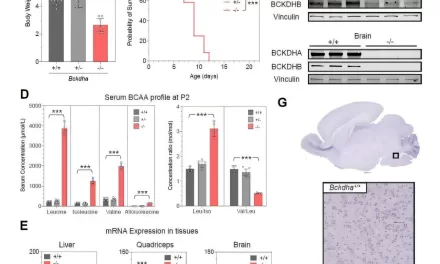A recent study published in Lancet Infectious Diseases has explored the safety and bactericidal efficacy of quabodepistat in combination with delamanid and bedaquiline for treating pulmonary tuberculosis. The study presents promising findings that could lead to a more effective and tolerable treatment regimen for patients suffering from drug-resistant tuberculosis.
The Burden of Tuberculosis
Tuberculosis remains a major global health challenge, responsible for 1.3 million deaths in 2022. Standard treatment regimens focus on inhibiting Bacilli replication, eliminating dormant bacilli, and preventing drug resistance. However, long-duration treatment strategies have posed significant challenges, with many patients struggling to tolerate and complete their prescribed courses. Current combination therapies for multidrug-resistant tuberculosis include diarylquinoline (such as bedaquiline) and nitroimidazoles like delamanid and pretomanid.
Promising Properties of Quabodepistat
Quabodepistat, a 3,4-dihydrocarbostyril derivative, has demonstrated strong bactericidal activity with low minimum inhibitory concentrations in both laboratory and clinically isolated tuberculosis strains. Furthermore, previous trials have shown that healthy adults can tolerate quabodepistat at doses ranging from 10 mg to 480 mg.
Study Design and Key Findings
A pilot study assessed the pharmacokinetics and bactericidal activity of quabodepistat combined with delamanid and bedaquiline over a 14-day period. The study measured efficacy by evaluating sputum colony-forming units (CFUs) on agar media and analyzing lipoarabinomannan concentrations using an enzyme-linked immunosorbent assay (ELISA). Additionally, the mycobacterial growth indicator tube (MGIT) time-to-detection method was utilized to assess bacterial reduction.
Approximately 73% of the patients reported at least one treatment-emergent adverse event, the majority of which were mild to moderate in severity. Only 5% of participants in the quabodepistat + bedaquiline group developed severe adverse events, though these were not attributed to the study drug. Cases of moderate hyperkalemia were observed in the bedaquiline cohort, but these were linked to pre-existing conditions rather than the new combination therapy.
Future Implications
The study indicates that quabodepistat, when combined with delamanid and bedaquiline, has strong bacteriological effects and a favorable safety profile for treating tuberculosis in adults. While these preliminary results are encouraging, larger-scale and long-term trials will be necessary to confirm the findings and establish the treatment’s long-term efficacy and safety.
Disclaimer
The information in this article is based on findings from a recently published study and should not be considered medical advice. Patients should consult healthcare professionals before considering any changes to their treatment plans.
(Source: News Medical)












